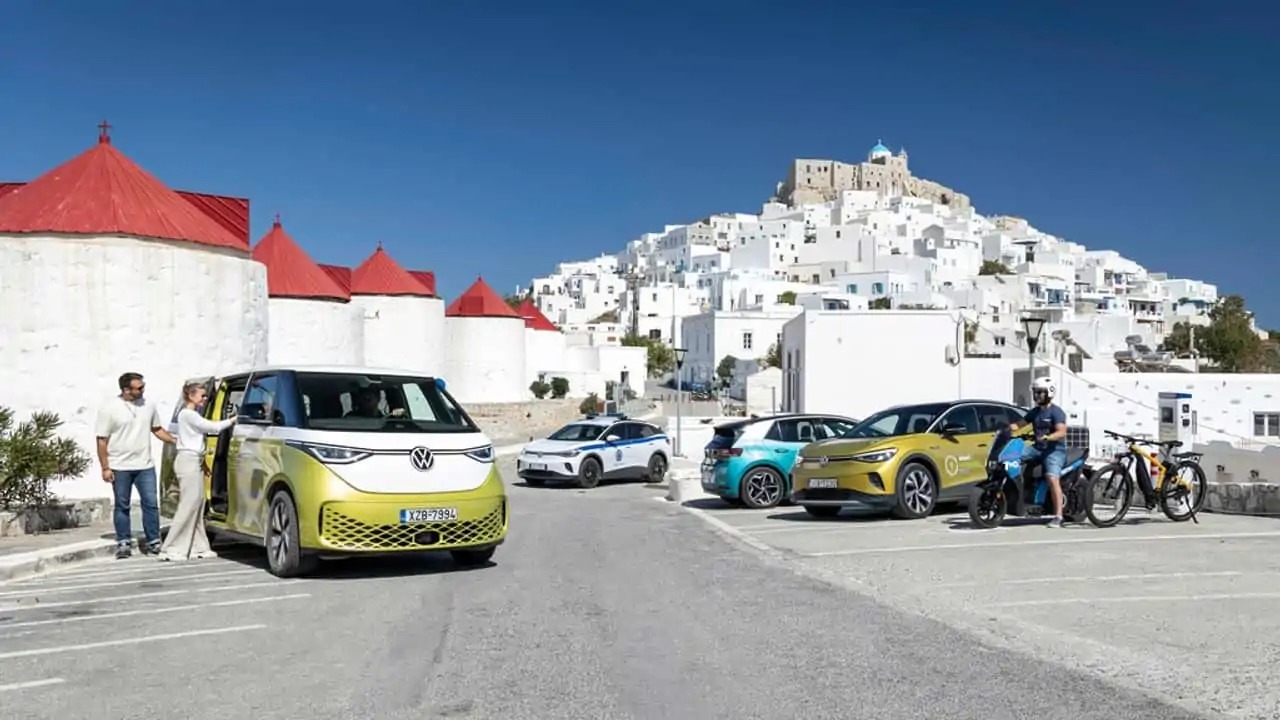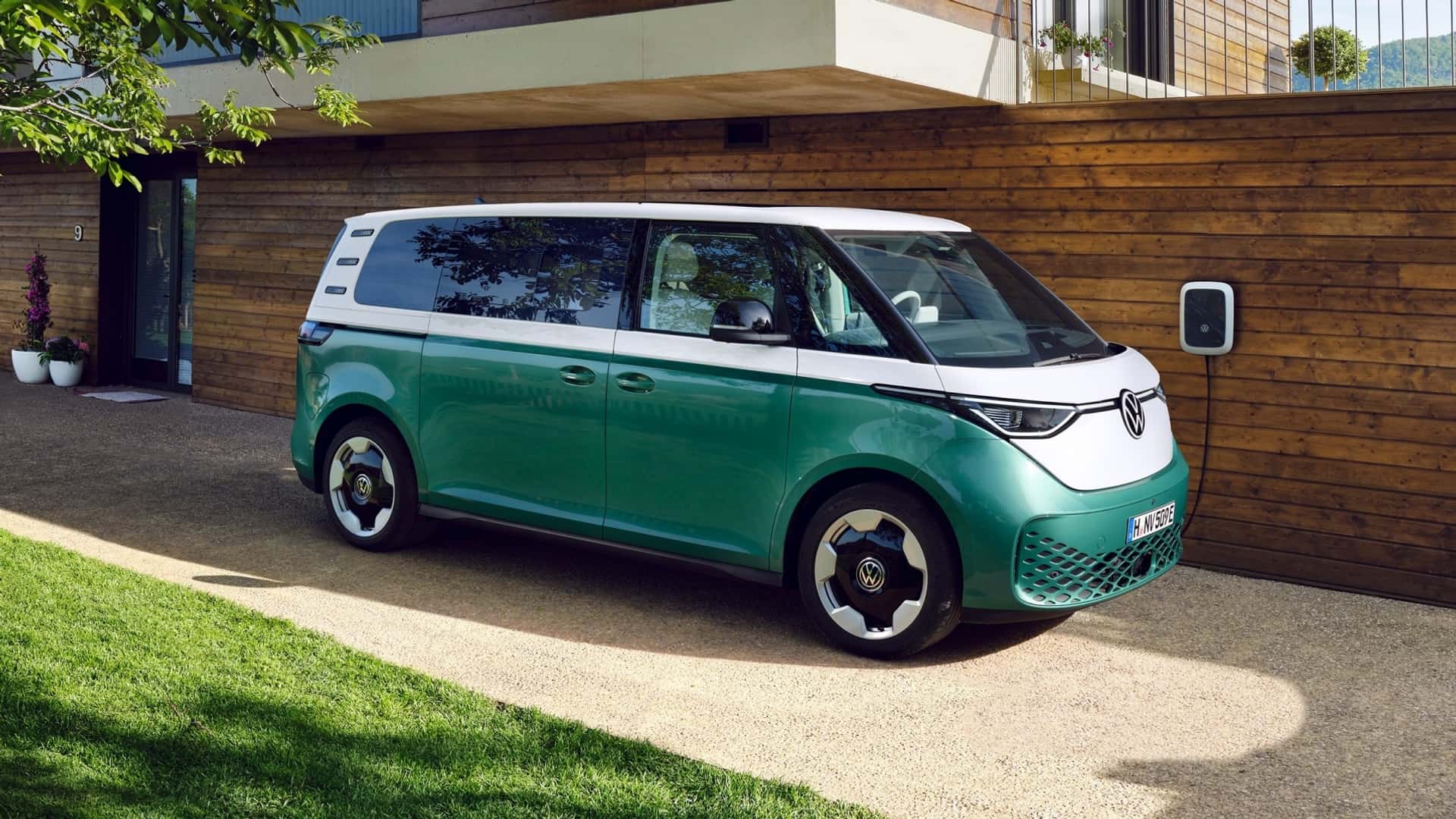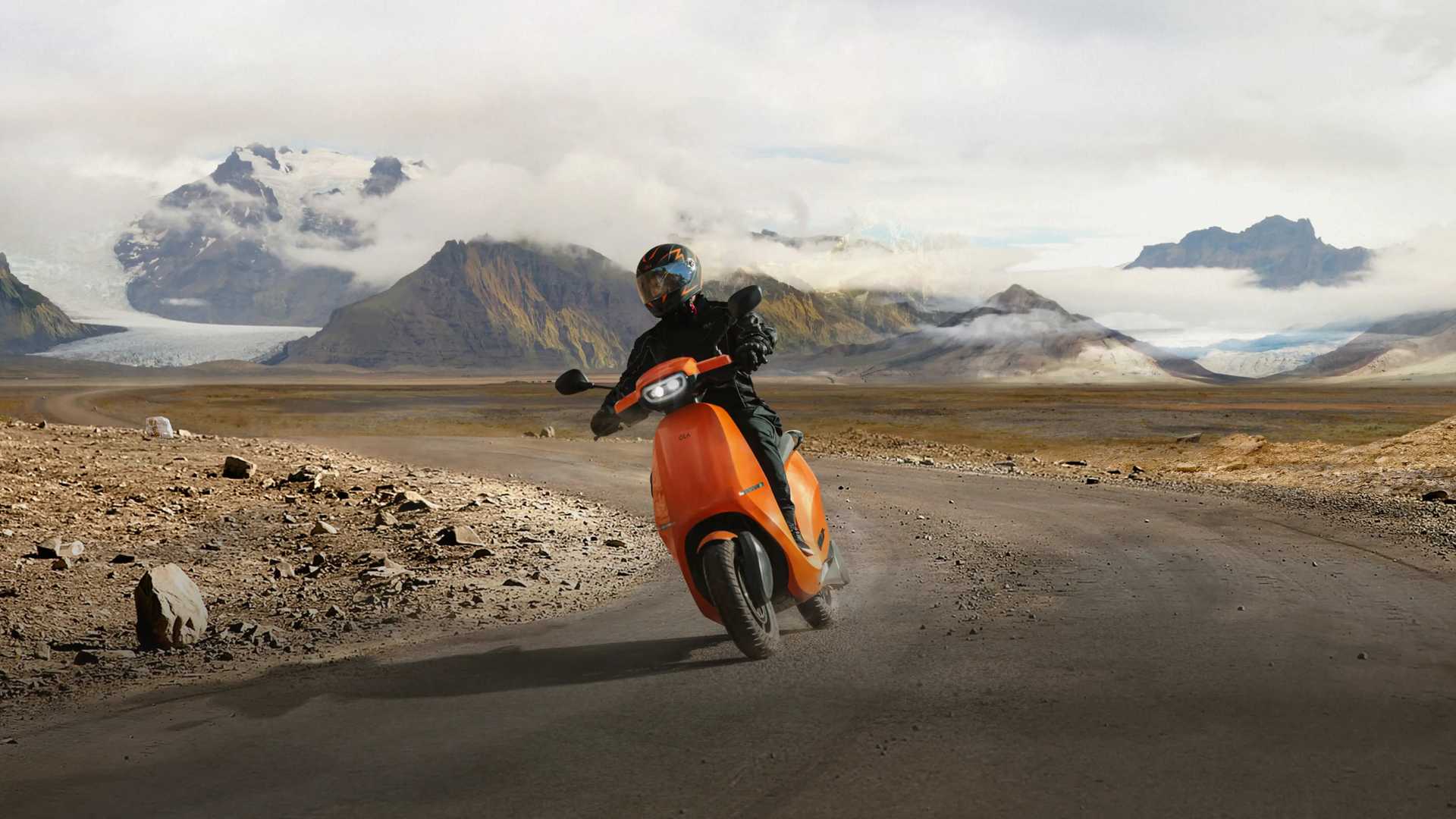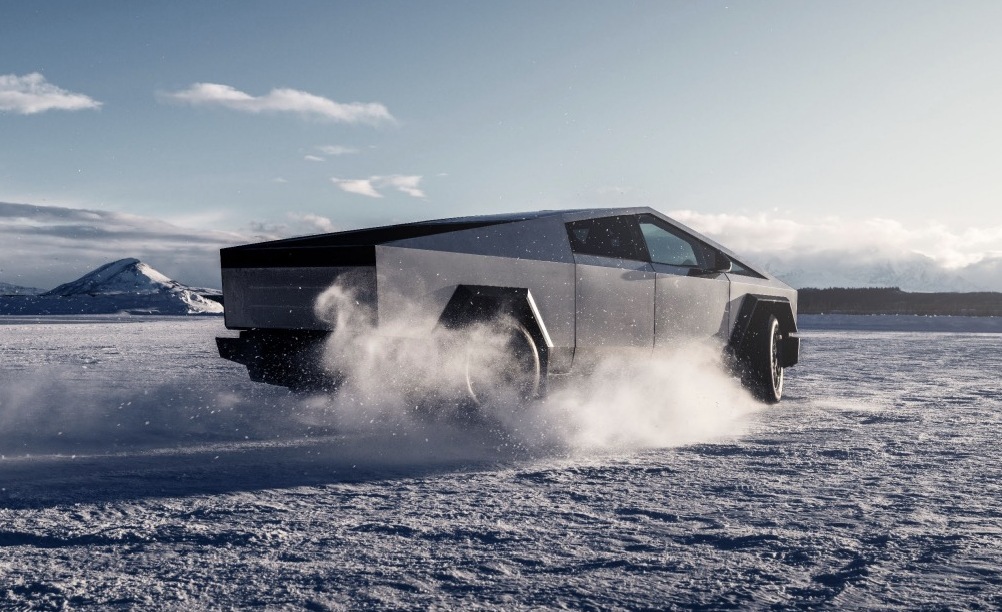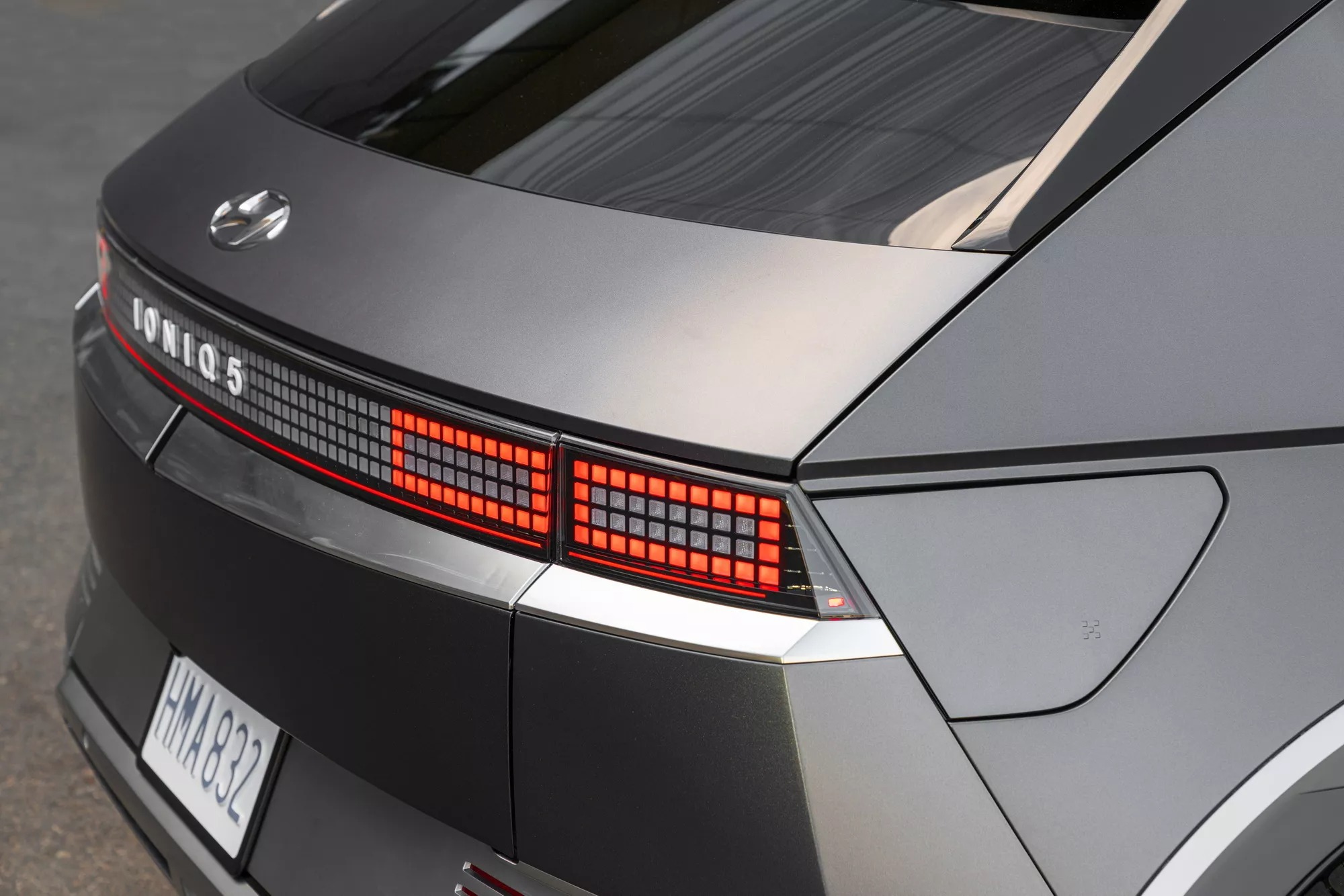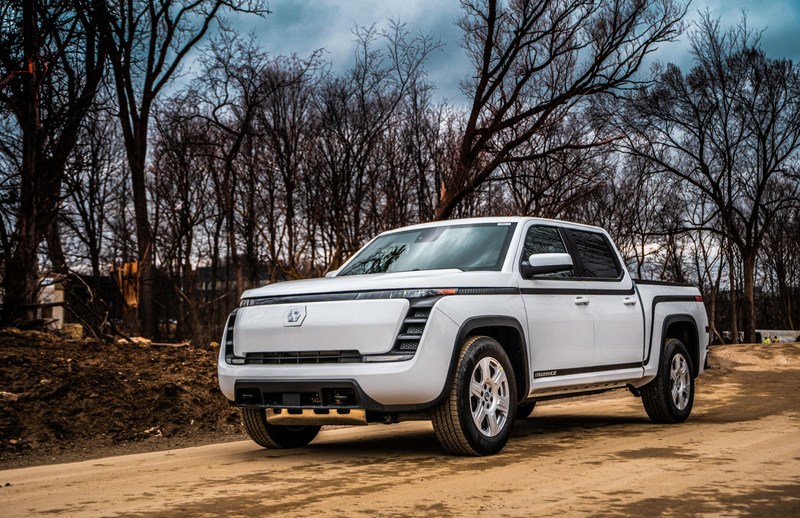In a groundbreaking joint initiative, the Volkswagen Group and the municipality of Astypalea in Greece have successfully completed their ambitious project to electrify all transportation on the island. What began in 2020 as an innovative endeavor has now become a thriving test bed for zero-emissions mobility, thanks to the collaborative efforts of the German carmaker and the local community.
Astypalea, a picturesque island nestled in the Aegean Sea, has garnered attention for its remarkable transformation, driven by Volkswagen, Volkswagen Commercial, Ducati, and Seat MÓ. These prominent entities have played a pivotal role in developing a robust public charging infrastructure and electrifying various essential services, including police cars, ambulances, airport shuttles, and public transportation.
The introduction of Volkswagen Group’s electric vehicles (EVs) on the island has been met with resounding success. From zero EVs previously, the number has now surged to an impressive 84. Notably, the iconic ID. Buzz electric microbus has been renamed as ASTYBUS and has traveled over 125,000 miles (200,000 kilometers), efficiently transporting passengers around the island. Additionally, the astyMOVE app offers customers the convenience of renting other electric vehicles such as the ID.3 electric hatchback, Seat MÓ electric scooter, and Ducati e-bikes.
The impact of this initiative extends beyond the tourism sector. The majority of newly registered vehicles on Astypalea are now EVs, signaling a significant shift towards sustainable transportation. Moreover, an impressive 25 percent of the island’s inhabitants rely on the ASTYBUS transportation service, showcasing the community’s enthusiastic adoption of electric mobility.
Looking ahead, Volkswagen Group and the local administration have set their sights on renewable energy as the next phase of their collaboration. While existing small-scale solar plants already provide a portion of the island’s green electricity for the electric fleet, a larger 3.5-megawatt solar park is currently in development and scheduled to be operational by 2024. This ambitious project aims to meet the entirety of the island’s e-mobility needs and up to 60 percent of its general energy requirements, significantly reducing carbon emissions.
Astypalea’s transformation serves as a shining example of what can be achieved when companies, politicians, and society join forces. Maik Stephan, head of business development at VW Group, expressed his vision for widespread electrification, emphasizing that similar changes witnessed on the island will likely unfold in other regions of Europe over the next two decades. The remarkable shift in public sentiment, from initial skepticism to overwhelming approval, highlights the potential for rapid transformation when all stakeholders work collaboratively towards a common goal.
With the successful completion of the electrification project on Astypalea, Volkswagen Group has firmly established itself as a frontrunner in sustainable mobility solutions. As the world continues to prioritize the transition to cleaner energy, initiatives like these serve as vital stepping stones towards a greener and more sustainable future.

